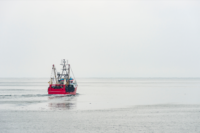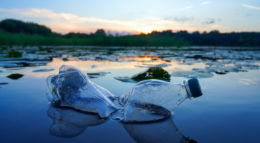
What does the future hold for the UK fishing industry and marine environment?
Fisheries never seem to be far from the headlines. Despite the tiny contribution of commercial fisheries to the UK economy, fish and fishing are deeply engrained in British history and culture. Just look at the prominence of fisheries in the Brexit campaign and following negotiations. Who can forget the flotilla on the Thames or Boris Johnson’s fish tie when he finally announced the Trade and Cooperation Act (TCA).
Unfortunately for British fishermen, the promised “Sea of Opportunity” appears to have evaporated. There was widespread condemnation of the Brexit deal from the UK fishing sector, although hope remains for an improved reboot when the TCA is reviewed next year. But, Keir Starmer, never a fan of Brexit, now appears to be searching for a closer relationship with the EU. The EU are clear they want to maintain existing fishing rights in any new deal; it therefore appears unlikely that anything will change.
Meanwhile, the UK and EU are currently fighting in court over the UK’s decision to ban fishing for sandeels in the North Sea. The UK’s right to take unilateral environmental measures in our offshore marine areas is a rare Brexit benefit. Sandeels may seem an unassuming little fish, but they provide vital food for endangered sea birds and many other species, while being the target of significant EU fisheries. The UK claims it is safeguarding the environment, the EU claims the measures are discriminatory and violate the terms of the TCA.
But if the UK is really to better protect and restore its marine environment, and with that thriving fisheries, it needs to go a lot further. The Office for Environmental Protection, the UK’s post Brexit environmental watch dog, has just reported that England is likely to miss environmental targets for Good Environmental Status due to overfishing and pollution. Likewise, many of our Marine Protected Areas (MPAs) still allow bottom trawling, which can cause long term damage to seabed habitats, the exact thing that many MPAs were set up to protect.

Against this backdrop of delayed environmental action, offshore wind farms are rapidly expanding in the seas around our coasts. UK government targets are to produce 50 GW of energy from offshore wind by 2030, quadrupling where we were in 2024. The fishing industry is becoming increasingly concerned about ‘spatial squeeze’ due to both this vast development and the new regulations in MPAs – if and when they are implemented. This twin effect will restrict access to traditional fishing grounds in a sector that is already struggling.
So what does the future hold for UK fisheries and our marine environment? At the recent Coastal Futures conference, the largest annual gathering of marine experts in the UK, a prominent theme was the need for increased collaboration. Indeed, as climate change increasingly causes the distribution of fish stocks to move and fluctuate, the need to manage fisheries in close partnership with our international neighbours, including the EU and Norway, will only become more important.
Fishermen, scientists and managers also need to work together more closely. Recent studies have shown the fishing industry has alarmingly low levels of trust in these other sectors, but actively doing joint research and co-producing management measures can help tackle that. For example, the ongoing Fishing Industry Science Partnership on pollack is collecting a huge amount of data in collaboration with recreational charter boat skippers, which should inform better management of this troubled fishery in the future.
We also need to embrace innovation. Just over 2 years ago, the world heard the phrase ‘scallop disco’ for the first time. This term actually refers to the somewhat accidental discovery that scallops can be attracted into crab and lobster pots using bright lights. Since then the method has been refined, a ‘Disco Scallops’ company has been formed, and these dancing scallops are finding their way into high end restaurants. Fisheries for scallops are among the most valuable of all species in the UK, but the main method to catch them, dredging, can cause considerable environmental damage. Potting for scallops is a low impact alternative that could also be used in certain MPAs and among wind farms.
Am I optimistic for the future? Kind of. We are unlikely to meet any of the global targets for increased marine protection or healthy fisheries by 2030 – we never do. But things are slowly moving in the right direction. With a new found focus on working together and continuously innovating we just might be more scallop and dance towards a brighter future.

Dr Bryce Stewart is a Senior Research Fellow at the Marine Biological Association.














